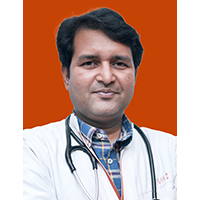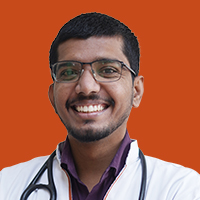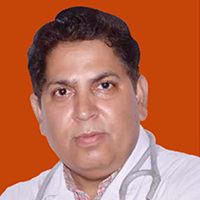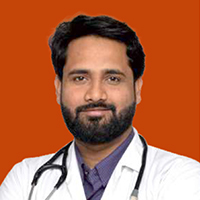

Successful Treatments
Clinics
Doctors
What is Malaria?
Malaria is a serious disease caused by small parasites which spread to people by the bites of infected mosquitos. An infected mosquito bites and infuses these parasites into your bloodstream. It's not caused by a virus or bacteria but parasites which multiply inside your body, particularly in your red blood cells. Malaria causes fever, chills and other flu-like symptoms. In case not treated timely, it could result in brain damage, breathing issues and even death.
Malaria is mostly present in tropical and subtropical locations where mosquitoes thrive; the vast majority of cases are in South Asia and Africa. It's especially dangerous for young children, pregnant women and unprotected travellers. The prevention of Malaria focuses on avoiding mosquito bites through nets and insect repellents as well as preventive medications when travelling to areas where Malaria is common.
The good news is that Malaria can be treated with Ayurvedic medicine and preventive approaches could lower the risk of this deadly disease considerably. If you notice any symptoms of Malaria, get immediate medical help for a proper diagnosis and treatment.
Common Causes of Malaria
Malaria is spread by the bites of female Anopheles mosquitoes carrying Malaria parasites. These mosquitoes are active between dusk and dawn. Understanding the process of transmission helps in preventing and controlling the disease.
The common causes of Malaria are listed below:
Bites of Infected Mosquitoes: The most common cause of Malaria is the bite of an infected female Anopheles mosquito. It transmits Malaria parasites into the blood when it bites a person.
Mother to Child: A woman who is pregnant could spread the disease to her unborn child, leading to severe health issues in the child. This is called congenital Malaria.
Transfusion of Blood: In case the donated blood has Malaria parasites, individuals might contract Malaria from a blood transfusion, though this is extremely rare.
Organ Transplants: Like blood transfusions, receiving an organ from a donor who had Malaria could spread the parasites.
Shared Needles/Syringes: Using needles or syringes that an infected person used can also spread Malaria (though it is rare).
Signs and Symptoms of Malaria
Malaria symptoms can be quite severe and generally resemble flu. These signs should be recognised early for appropriate treatment. From the first mosquito bite to onset of symptoms, it could take between 10 days to 4 weeks.
The key signs and symptoms of Malaria to look for are:
Do you have any of the following symptoms?
- High fever
- Severe chills that make you shake uncontrollably
- Intense headaches
- Muscle aches or general body aches
- Tiredness or weakness
- Nausea or vomiting
- Yellowing of your skin or the whites of your eyes
- Difficulty breathing or experiencing chest pain
Jiva Ayunique™ Treatment Philosophy - A Holistic Approach to Malaria
Jiva Ayurveda offers holistic Ayurvedic treatment of Malaria using evidence-based Ayurveda. The treatment plans are customised to target the very root causes of the disease, and instead of just treating symptoms, they focus on holistic healing, balance and stability in totality.
Core Principles of the Jiva Ayunique™ Treatment Philosophy
HACCP certified Ayurvedic medicines: Scientifically-formulated mixtures that help restore balance in the body and maintain emotional stability.
Yoga, Meditation and Mindfulness-Practices: Gentle techniques for mental wellness and overall quality of life.
Ayurvedic Healing Treatments: Therapies like Panchakarma and soothing massages that cleanse the body and bring emotional balance.
Diet & Lifestyle Guidance: Expert recommendations on how to change your diet and everyday habits to get you in peak health.
Ayurvedic Medicines for Malaria
Ayurvedic medicine are formulated carefully to treat Malaria which strengthens the immune system and alleviates Malaria symptoms. These herbal formulations have been documented for their effectiveness in treating Malaria. Following are some commonly used naturally-sourced Ayurvedic herbs used to formulate efficient Ayrvedic medicines for Malaria:
Saptparna ki Chhaal (Bark of Alstonia scholaris): The bark of the Saptparna tree (boiled in water) can be used as a decoction or 'kadha' to lower fever and increase immunity.
Giloy (Tinospora Cordifolia): This powerful herb acts as an immunomodulator to improve resistance to infections. Daily intake of giloy juice or powder can increase blood platelet count and reduce weakness symptoms.
Haritaki (Terminalia chebula): Haritaki powder is antiviral and antimicrobial. A teaspoon of Haritaki powder in warm water can clear the system and fight Malaria parasites.
Dhaniya (Coriander): The seeds or stems of coriander can be boiled in water to create a calming tea. Dhaniya water reduces fever and detoxifies the body during Malaria.
Sonth (Dry Ginger): Ginger powder is antipyretic and anti-inflammatory. Chills and body aches can be relieved by drinking dry ginger powder with hot water.
FAQs
Ayurveda considers Malaria an imbalance of the 'Pitta' and 'Kapha' doshas. It suggests cleansing and restoring the balance of these energies to ease symptoms.
Ayurveda may support Malaria prevention by dietary adjustments and herbal supplements that strengthen the immune system and balance body energies.
Herbs like Neem, Tulsi and Turmeric are prescribed for their immune boosting and anti-parasitic properties and may help prevent Malaria.
Ayurveda suggests herbal teas prepared from ginger, tulsi or musta (nut grass) to cool the body and lower fever.
Ayurveda provides remedies to ease symptoms and promote recovery, and can be used for complete Malaria treatment.
Ayurveda suggests proper rest, good hydration and a moderate diet containing vegetables and fruits to help you recover and regain body strength.
Ayurvedic treatments for children may contain milder herbal preparations and dietary recommendations for immunity and recovery, prescribed by an Ayurvedic practitioner.
Ayurvedic practices such as Chyawanprash and regular intake of Giloy may improve immune function and decrease Malaria risk.
Ginger and peppermint are recommended in Ayurveda as anti-nausea preparations and can be taken as teas to settle the stomach.
Ayurvedic treatments like Panchakarma can cleanse the body and prevent recurrence of Malaria by eliminating toxins from the body.
Yes, a diet of easily digestible foods like porridge, soups and boiled veggies is suggested for digestion help and recovery.
Top Ayurveda Doctors
Our Happy Patients
Social Timeline
Home Remedies
- मसूड़ों की सूजन और दर्द का आयुर्वेदिक इलाज - घरेलू नुस्खे और मुफ़्त परामर्श
- डेंगू से कमजोरी? आज़माएं ये आयुर्वेदिक घरेलू नुस्खे और पाएं मुफ़्त परामर्श
- क्या कोरोना के लक्षण महसूस हो रहे हैं? ये आयुर्वेदिक नुस्खे देंगे राहत
- नाक बंद और भारी सिरदर्द? आज़माएं ये घरेलू नुस्खे, असर तुरंत
- स्ट्रेस, थकान या माइग्रेन? ये आयुर्वेदिक नुस्खे देंगे सिरदर्द से छुटकारा
- दाँत में झनझनाहट या कैविटी का दर्द? ये आयुर्वेदिक नुस्खे देंगे राहत
- Home Remedies for Headache
- Home Remedies for Sensitive Teeth
- Home Remedies for Tooth Cavity
- Home Remedies for Dengue
- Home Remedies for Corona
- Home Remedies for Cold
- Home Remedies for Burning Feet
- Home remedies for Migraines
- Home Remedies For Fever
Related Disease
- Ayurvedic Treatment for Obesity
- Ayurvedic Treatment for Migraine
- Ayurvedic Treatment for Heat Stroke
- Ayurvedic Treatment for Paralysis
- Ayurvedic Treatment for Mastitis
- Ayurvedic Treatment for Gangrene Foot
- Ayurvedic Treatment for Granuloma
- Ayurvedic Treatment for Amyloidosis
- Ayurvedic Treatment for Thrombocytopenia
- Ayurvedic Treatment for Dengue
- Ayurvedic Treatment for Measles
- Ayurvedic Treatment for Fistula in Ano
- Ayurvedic Treatment for Malaria
- Ayurvedic Treatment for Plantar Fasciitis
- Ayurvedic Treatment for Chikungunya
- Ayurvedic Treatment for Sepsis
- Ayurvedic Treatment for Addison's Disease
- Ayurvedic Treatment for Eye Floaters
- Ayurvedic Treatment for Eye Flu
- Ayurvedic Treatment for Herpes
- Ayurvedic Treatment For Teeth Cavities
- Ayurvedic Treatment for Tooth Pain
- Get Ayurvedic Treatment for Vertigo
- Get Ayurvedic Treatment for Thrombosis
- Ayurvedic Treatment for Corona
- Ayurvedic Treatment for Ascites
Latest Blogs
- क्या अचानक बढ़ता दर्द और जोड़ों की लालिमा गाउट की निशानी है? शरीर में जमा अम्ल की भूमिका समझिए
- Migraine और भोजन का समय: देर से खाना सिरदर्द को क्यों बढ़ा देता है?
- क्या एंटीबायोटिक लेने के बाद पाचन पूरी तरह बिगड़ गया? आयुर्वेद के अनुसार Colitis के उपचार जानें
- अगर मामूली आहार भी पाचन तंत्र सहन न कर पाए तो Colitis को हल्का क्यों नहीं मानना चाहिए? आयुर्वेदिक दृष्टि से जानें
- लंबे समय से सक्रिय Colitis क्यों शरीर की रिकवरी क्षमता को कमज़ोर कर देती है? आयुर्वेदिक नज़र से जानें
- नॉर्मल एंडोस्कोपी, नॉर्मल रिपोर्ट्स… फिर भी रोज़ दर्द—IBS में गलत इलाज कैसे बीमारी को Chronic बना देता है! आयुर्वेदिक उपचार समझें
- क्या बाहर का खाना या मसालेदार भोजन आपके IBS को तुरंत ट्रिगर कर देता है? आयुर्वेदिक दृष्टि से समझें और कब Ayurvedic doctor से मिलना चाहिए जानें
- IBS में दवाइयाँ काम क्यों नहीं करतीं? आयुर्वेदिक कारण और उपचार समझें
- कभी कब्ज़, कभी दस्त: यह सिर्फ पाचन नहीं, पूरे सिस्टम का असंतुलन हो सकता है! जानें कब Ayurvedic doctor से मिलना ज़रूरी हो जाता है
- क्या सर्दियों में दवाइयों के बावजूद साँस पूरी नहीं खुलती? अस्थमा की जड़ आयुर्वेद से समझें
- क्या धूल, धुआँ या परफ्यूम से तुरंत साँस लेने में तकलीफ़ होती है? Asthma के ट्रिगर आयुर्वेद की नज़र से समझें
- सर्दियों में अस्थमा क्यों ज़्यादा बिगड़ जाता है? ठंडी हवा और कफ-वृद्धि का आयुर्वेदिक कारण जानें
- क्या ठंडी हवा लगते ही सीने में जकड़न और साँस लेने में परेशानी होती है? अस्थमा को आयुर्वेद की नज़र से जानें
- क्या सुबह उठते ही बलगम के साथ खाँसी आना अस्थमा का संकेत है? आयुर्वेद से समझें
- क्या लंबे समय तक लैक्सेटिव का उपयोग आपकी कब्ज़ को और जटिल बना रहा है? आयुर्वेदिक समाधान जानें
- क्या गैस, पेट फूलना और सिरदर्द का साथ में होना Chronic Constipation का क्लासिक पैटर्न है? आयुर्वेदिक व्याख्या समझें
- क्या सुबह नींद खुलते ही पेट साफ न होना ‘धीमी अग्नि’ का संकेत है? दीर्घकालिक कब्ज़ में आयुर्वेदिक कारण जानें next topic
- क्या लंबे समय तक बैठकर काम करने से आपकी कब्ज़ लगातार बढ़ रही है? आयुर्वेदिक दृष्टिकोण देखें
- क्या कब्ज़ के चलते आपकी नींद, ऊर्जा और पाचन सब प्रभावित हो रहे हैं? आयुर्वेद में इसके मूल कारण और ज़रूरी उपाय जानें
- क्या तनाव और चिंता भी Chronic Constipation का छुपा हुआ कारण बन सकते हैं? आयुर्वेदिक दृष्टि देखें
Ayurvedic Doctor In Top Cities
- Ayurvedic Doctors in Bangalore
- Ayurvedic Doctors in Pune
- Ayurvedic Doctors in Delhi
- Ayurvedic Doctors in Hyderabad
- Ayurvedic Doctors in Indore
- Ayurvedic Doctors in Mumbai
- Ayurvedic Doctors in Lucknow
- Ayurvedic Doctors in Kolkata
- Ayurvedic Doctors in Patna
- Ayurvedic Doctors in Vadodara
- Ayurvedic Doctors in Ahmedabad
- Ayurvedic Doctors in Chandigarh
- Ayurvedic Doctors in Gurugaon
- Ayurvedic Doctors in Jaipur
- Ayurvedic Doctors in Kanpur
- Ayurvedic Doctors in Noida
- Ayurvedic Doctors in Ranchi
- Ayurvedic Doctors in Bhopal
- Ayurvedic Doctors in Ludhiana
- Ayurvedic Doctors in Dehradun









































